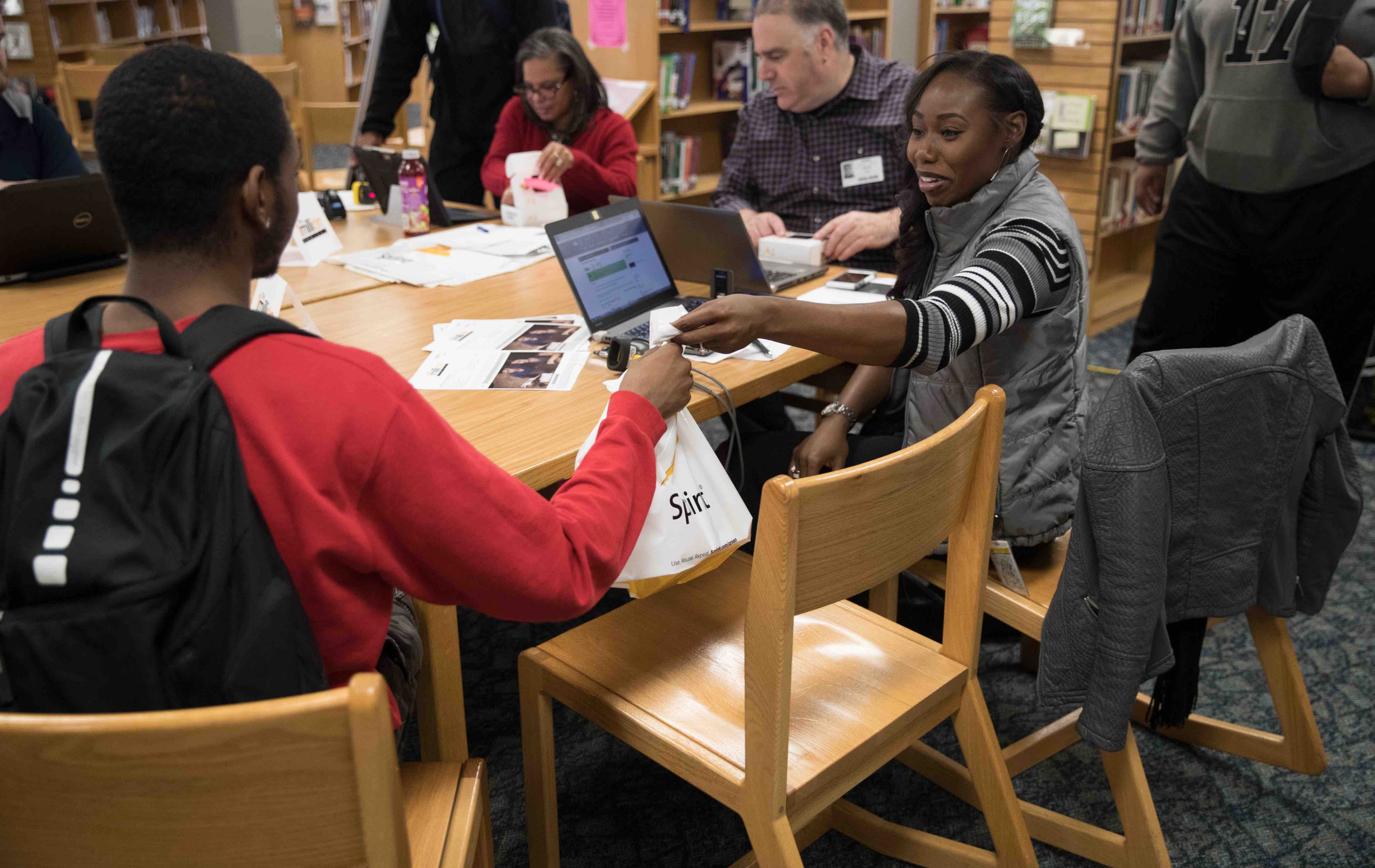More than 20 million U.S. households do not have an internet connection, according to the PEW Research Center.
Pairing that with the fact that schoolwork is more frequently requiring internet access, millions of students around the nation are severely limited in their learning.
In Kansas City, the story is no different — hundreds of households remain digitally divided — but Sprint is working to close the gap. The Overland Park-based telecom giant has partnered with Kansas City Public Schools to launch a pilot test of its “1Million Project,” in which Sprint plans to ultimately provide internet access to one million U.S. households with school-aged children.
Via the Sprint and its foundation, the multi-year effort will provide devices and services valued at about $2.2 billion.
Tim Donahue, Sprint regional president for Kansas and Missouri, said that the 1Million Project is the largest corporate initiative in U.S. history to bridge the digital divide. Donahue said that it’s tapping KCPS as its pilot district the streamline the effort before rolling it out nationally.
Ultimately, Donahue and Sprint hope that the program can help equalize opportunity for children in low-income households.
“Every company needs a soul and this is really a part of Sprint’s soul,” he said. “If we can help a student, we not only help them, but we help the family and society.”
KCPS communications chief Natalie Allen said that the district already provided each student a laptop but that it eventually encountered the unforeseen obstacle of connectivity. Thanks to Sprint, Allen said that already about 300 students in Kansas City schools have received internet hotspots to close the opportunity gap.
KCPS superintendent Dr. Mark Bedell said that the program aims to empower students learning.
“We must address the needs of entire families when it comes to digital literacy,” Bedell said. “That’s why our community and business partnerships are so important. We are thankful to Sprint and its foundation for choosing KCPS to help lead this project, and we are excited to see how these devices positively impact teaching and learning in our high schools. This project also allows for a more equitable learning environment for all students.”
To make a monetary donation, visit this site, or to donate a device, click here.




































